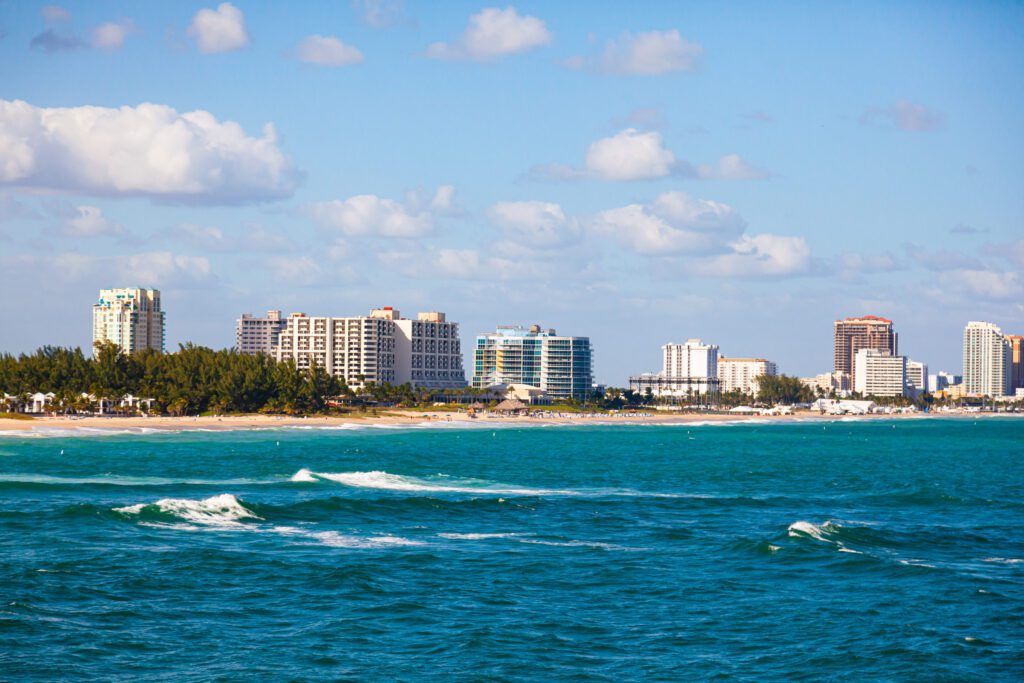Inventory Surge in Fort Lauderdale: Implications for South Florida Housing Market
The dramatic rise in housing inventory in Fort Lauderdale, Florida, signals potential challenges for home prices in the region. Real estate analyst Nick Gerli has identified this trend as a "troubling sign" for the future of South Florida’s real estate market.
Current Inventory Trends
According to Redfin’s latest data, Broward County, home to Fort Lauderdale, is experiencing a concerning supply of 9.84 months—the highest since the housing crash of 2007-2012. This figure is calculated based on a 12-week rolling average of inventory against monthly sales. Gerli, CEO of Reventure App, emphasizes the alarming speed at which conditions are changing in Florida, stating, "It’s shocking how fast the situation is deteriorating in Florida."
Key Data Points:
- Broward County Inventory: 9.84 months
- Comparison to Past Crashes: Highest level since 2007-2012
The Importance of Rising Inventory
Many housing experts predict a slowdown in home price growth across Florida, with certain overvalued markets potentially seeing price reductions. Factors contributing to this forecast include:
- Increased Building Projects: Florida has greenlit more construction projects than any other state, except Texas.
- Legislation Impact: New laws requiring regular inspections for aging condos and mandating homeowner associations maintain sufficient funds for repairs have led to an influx of listings. Many condo owners are trying to sell, but buyer interest remains low.
National Trends Affecting Fort Lauderdale
Across the nation, the housing market is seeing a rise in inventory as well, with Redfin reporting 3.7 months of for-sale supply in January—the highest in six years. Florida cities like Cape Coral, Miami, and Fort Lauderdale are now classified as buyer’s markets.
Inventory Levels by City:
- Cape Coral: 11.6 months (up from 8.6 YoY)
- Miami: 11.4 months (up from 8.4 YoY)
- Fort Lauderdale: 10.3 months (up from 7.4 YoY)
- West Palm Beach: 9.6 months (up from 7.8 YoY)
While buyers may find more homes available, many are hesitant to act due to elevated home prices and mortgage rates.
Comparing Current Conditions to 2007
Interestingly, despite escalating inventory, home values in Fort Lauderdale have yet to decline. As of January 2025, home prices saw a 0.1% YoY increase, with median home prices rising 27.5% to $642,000. This situation bears resemblance to pre-crash dynamics in 2006-07, when inventory surged without immediate price drops.
Gerli compares the current market conditions, stating, "This situation today in South Florida feels very similar to 2006-07."
Market Perspectives
Redfin’s Chen Zhao explains the evolving definition of a buyer’s market, noting that despite ample supply, buyers feel constrained due to high home prices and mortgage rates:
"Many buyers don’t feel like they are in a buyer’s market, with home prices at near-record highs."
Local agents, like Bryan Carnaggio in Jacksonville, affirm that while there’s considerable inventory, many sellers are reluctant to reduce prices, leading to increased negotiation opportunities for buyers.
Future Outlook
Reflecting on the events leading up to the 2008 financial crisis, Gerli warns of a similar "suspension of disbelief” regarding the current market trends. Yet, he points out key differences today:
- Less Risky Mortgage Landscape: Fewer bad mortgages compared to the pre-2008 era.
- Absence of Major Recession: The market has not faced a significant recession, which has contributed to sustained home prices.
However, as inventory levels remain elevated, the risk of price declines increases, especially given that homes in Broward County are currently 32% overvalued compared to long-term norms.
Conclusion
Fort Lauderdale’s real estate market is at a pivotal point, characterized by rising inventory and uncertain future pricing. While buyers enjoy more choices and potential price negotiations, the overall market dynamics may lead to significant shifts in home values in the coming months. Stakeholders should remain vigilant and informed as the landscape evolves.
For further details on the broader Florida real estate trends, visit Redfin and keep an eye on the ongoing developments in the Sunshine State.


